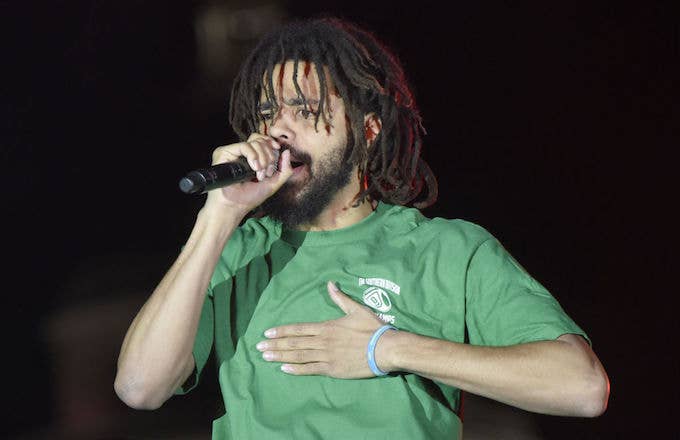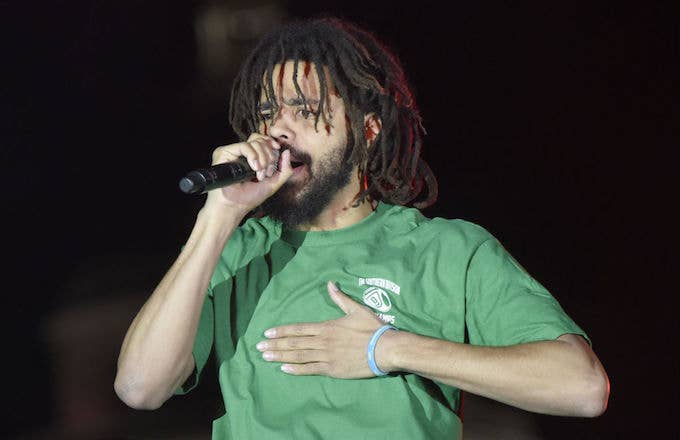
June 18, 2013 was the day that changed everything for J. Cole. That was when Jermaine Cole released Born Sinner, and it was also the day that Kanye West put out a little album called Yeezus.
The timing was no coincidence. Cole had originally been scheduled to drop his album a week later, but moved the date up to coincide with Kanye in order to, he said, make a “statement.”
"This is art, and I can't compete against the Kanye West celebrity and the status that he's earned just from being a genius," he explained at the time. "But I can put my name in the hat and tell you that I think my album is great and you be the judge and you decide."
The decision worked. While Cole’s album debuted at number 2 on the Billboard 200 behind Yeezus, it actually moved up to number 1 in its third week on the chart, at which point Born Sinner was actually outselling Kanye’s project.
Cole setting up that head-to-head battle with rap’s biggest star did more than get him a lot of press. Placing himself as the underdog in a sales battle helped him rally his fanbase and peers to support him. Remember the immortal video of Drake buying a gang of copies at Best Buy?
Since that moment, Cole has had concrete evidence that he could depend on his fans to back him up him the moment he drops new music. So why then go through the aggravation of the normal 10-week album rollout plan? Why subject yourself to endless radio station visits, the countless five-minute interviews with the same questions asked over and over again, the perpetual calls to action via social media, the same five podcast appearances everyone else makes, the listening parties where no one actually listens, the repetitive late night TV show circuit?
So Cole cut it all out. He’s become a different kind of rap star, doing seemingly whatever he wants, ignoring traditional gatekeepers, and sharing only what he sees fit—and having huge commercial success nonetheless. His fans, in turn, love him for it. We’ve received less and less warning about each Cole project since Born Sinner, culminating in 2016’s 4 Your Eyez Only. The only songs we heard before that album’s release, “False Prophets” and “Everybody Dies,” weren’t even on the album (instead, they appeared in the documentary Eyez), and were barely promoted. Despite that, they both ended up on the Billboard Hot 100.
This Monday, Cole made his most radical move yet. He announced a new album, KOD, that would drop the following Friday. And then, in a move befitting his rap everyman persona, he proceeded to put on a series of listening events for fans only: “No press list. No guest list.” proclaimed the flyers.
It’s a far different approach from the other blockbuster album announced on Monday: Drake’s Scorpion. Rather than putting out an album with no advance music and next to no notice, Drake has been releasing music continuously (and judiciously) for the past few months. As soon as one song has been stuck in everyone’s head for a few months, he just replaces it with another, replacing himself at the top of the charts in the process. And only after he has market-tested a handful of proven hits does the album announcement come. It’s an approach that’s perfectly designed for the streaming age, and a lead time so long that nearly every potential listener will be acutely aware of Scorpion when it drops.
Drake’s approach, obviously, is working. But so is Cole’s. We are sure to see KOD, whatever the hell it stands for, debut at number 1 even if Cole, as seems likely, does no press and releases no music in advance. That’s because Cole, ever the populist, relies only on his core fans for his success, rather than ubiquity. And for that strategy, as with so many things, we have Kanye to thank.


